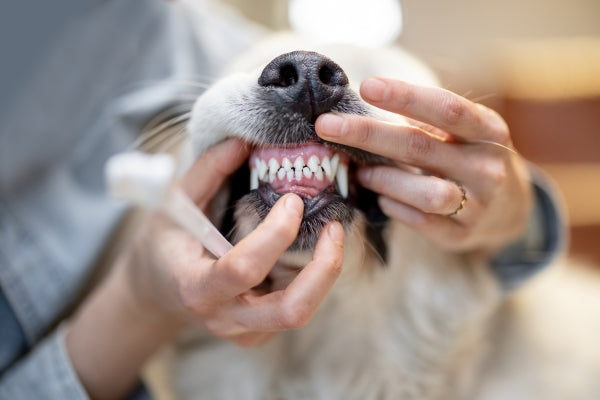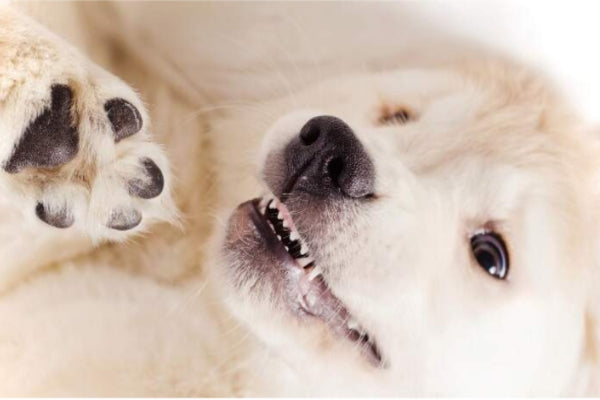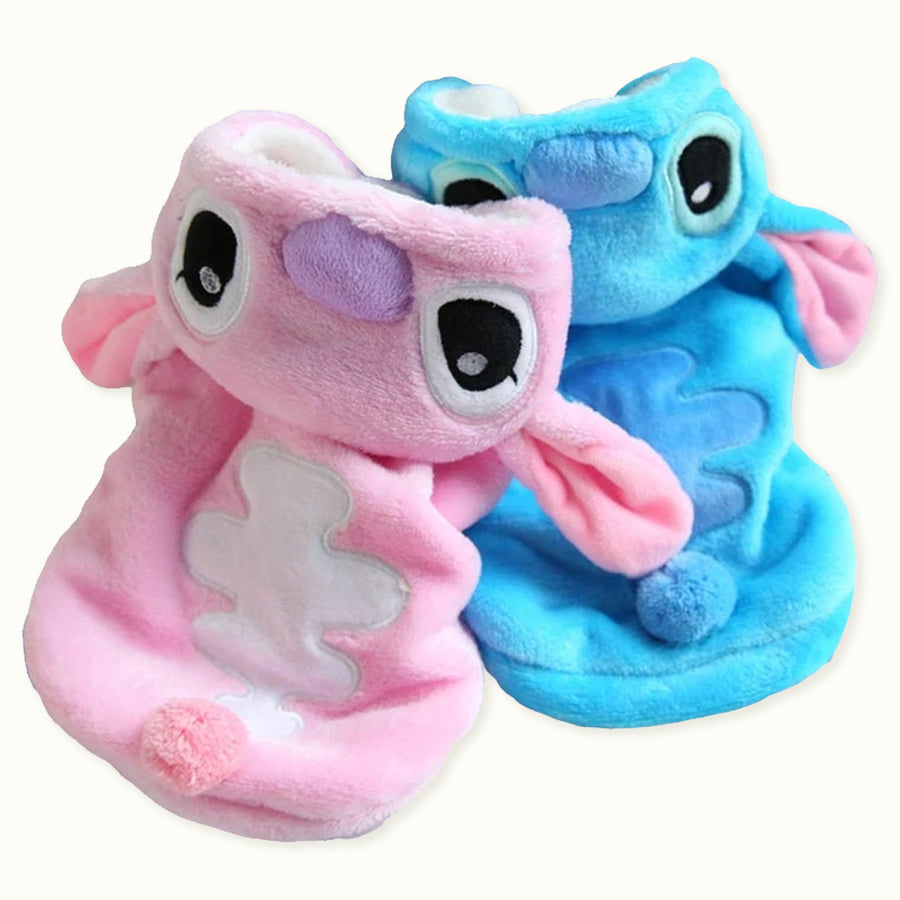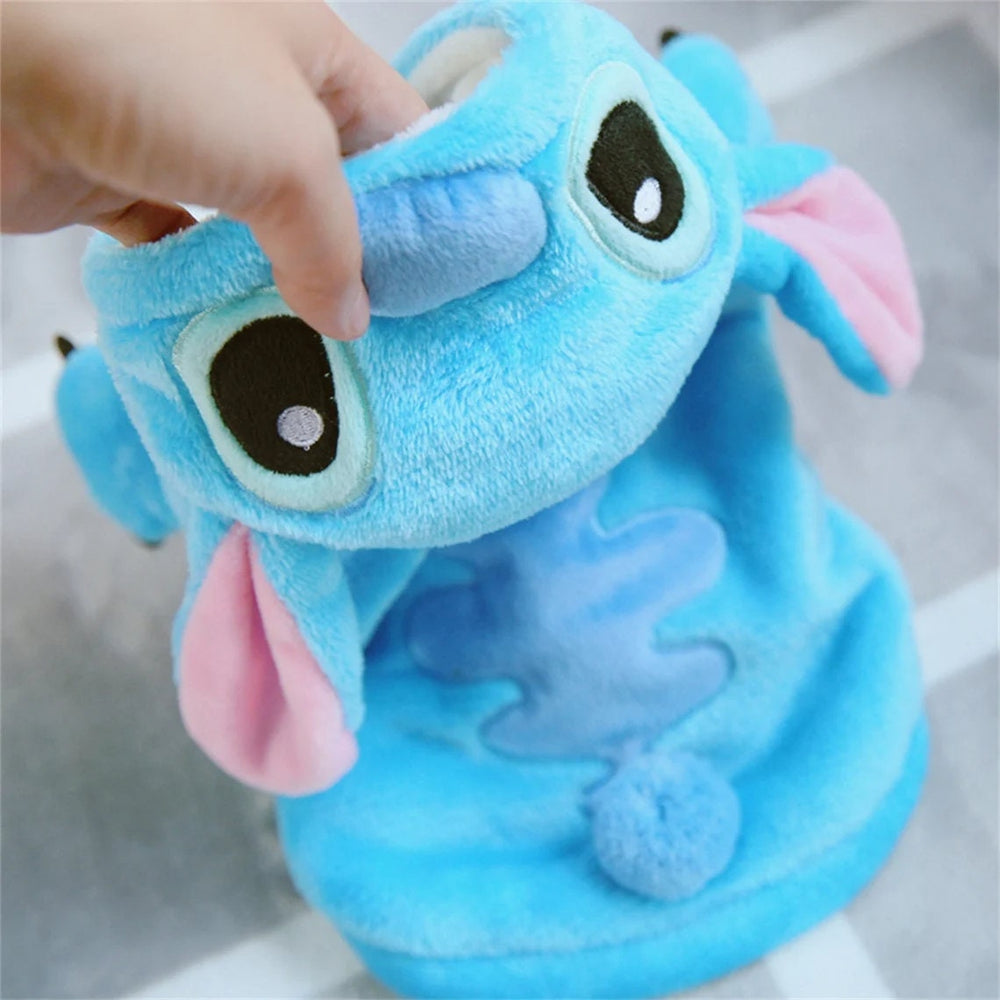Puppy Teething: What To Expect And How To Help Your Puppy
Puppies are adorable and bring joy to our lives, but they also come with their own set of challenges. One of the most common challenges that puppy owners face is teething. Just like human babies, puppies go through a teething phase where their baby teeth fall out and adult teeth emerge.
This can be a painful and uncomfortable experience for your furry friend, but as a responsible pet owner, it is important to understand what to expect and how to help your puppy during this phase.
In this guide, we will discuss everything you need to know about puppy teething and how you can make this process as smooth as possible for both you and your pup. From understanding the stages of teething to providing relief for your puppy's discomfort, we've got you covered. So, let's dive into the world of puppy teething!
What Is Puppy Teething?
Teething is a natural process that all puppies go through as they grow and develop. This typically occurs between the ages of 3 to 6 months but can vary from puppy to puppy. During this phase, your puppy's baby teeth will start to fall out and their adult teeth will start to come in. This is necessary for your pup to have strong and healthy teeth as they grow into adults.
Also known as deciduous teeth, puppy teeth are smaller and sharper than adult teeth. This is why puppies tend to chew on everything in sight - it helps them relieve the discomfort of their emerging teeth. As a responsible pet owner, it is important to understand this process and provide your puppy with the necessary support during this time.
Plus, it's not just about your puppy's teeth - teething also affects their behavior and overall well-being. Let's take a closer look at the stages of teething and how it can affect your puppy.
Stages Of Puppy Teething

There Are Three Main Stages Of Puppy Teething:
The Incisors Stage
The first stage of puppy teething begins at around 3 to 4 weeks old when your puppy's incisors (front teeth) start to emerge. These are the small and sharp teeth located in the front of your puppy's mouth. During this stage, puppies will often chew on toys, furniture, and anything else they can get their paws on to relieve the discomfort of their emerging teeth.
You may also notice your puppy drooling more and having a decreased appetite during this stage. This is completely normal as their mouth is going through changes and they may experience some pain or discomfort while chewing or eating. It's important to monitor your puppy's behavior during this time and provide them with appropriate chew toys to keep them occupied.
The Canine Stage
Around 4 to 6 weeks old, your puppy's canine teeth (fangs) will start to emerge. These are the longer and pointed teeth that are used for tearing and ripping food. During this stage, puppies may experience more discomfort as these teeth are larger and take longer to fully come in. You may also notice increased chewing and nipping behavior from your puppy as they try to alleviate the discomfort.
It's important to continue providing appropriate chew toys for your puppy during this stage, but it's also a good idea to start introducing them to harder chew toys that can help soothe their gums. Ice cubes or frozen treats can also provide relief for your puppy's sore mouth.
The Premolar Stage
The final stage of puppy teething begins at around 6 to 8 weeks old when your puppy's premolars (back teeth) start to emerge. These are the larger and flatter teeth used for grinding food. During this stage, your puppy may experience the most discomfort as these teeth are the last to come in and may cause some swelling or irritation in their gums.
It's important to continue providing appropriate chew toys for your puppy during this stage, but now you can introduce harder and tougher toys as their adult teeth are starting to come in. You can also try giving them a frozen towel or cloth to gnaw on for relief.
How To Help Your Teething Puppy
As a responsible pet owner, there are many ways you can help your puppy during their teething phase. Here are a few tips to make this process easier for both you and your pup:
- Provide appropriate chew toys: As mentioned earlier, chew toys are essential for helping your puppy relieve the discomfort of their emerging teeth. Make sure to choose toys that are specifically designed for teething puppies and avoid giving them items such as old shoes or furniture, which can be harmful to their teeth.
- Keep an eye on their diet: During this phase, your puppy's appetite may decrease due to the discomfort in their mouth. It's important to monitor their food intake and offer softer options if necessary, such as wet food or soaked kibble.
- Use ice cubes or frozen treats: As mentioned earlier, ice can provide relief for your puppy's sore gums. You can try freezing some of their favorite treats in an ice cube tray and giving it to them to chew on.
- Provide love and comfort: Teething can be a stressful time for your puppy, so make sure to give them plenty of love and comfort during this phase. This will help ease their discomfort and keep them happy and well-adjusted.
- Consult with your veterinarian: If you notice excessive bleeding, swelling, or any other concerning symptoms during your puppy's teething phase, it's important to consult with your veterinarian. They can provide further guidance and ensure that everything is progressing as it should.
By understanding the stages of puppy teething and providing your pup with the necessary support, you can make this process smoother for both of you. Remember to be patient and consistent, and before you know it, your puppy will have a full set of healthy adult teeth ready for all the adventures ahead!
Does Teething Affect Behavior?

Yes, teething can affect your puppy's behavior. As their teeth start to come in, puppies may experience discomfort and pain in their mouths which can make them more irritable and restless than usual. This may lead to increased chewing, nipping, and other destructive behaviors as they try to alleviate the discomfort.
Teething can also affect your puppy's appetite and energy levels. They may be less interested in playing and exercising due to the discomfort in their mouth, or they may have a decreased appetite for food. This is all normal behavior during this stage, but it's important to keep an eye on your puppy and make sure they are still getting enough nutrition and exercise.
Additionally, some puppies may become more vocal or whiney during the teething phase as they try to express their discomfort. It's important to be patient and understanding with your puppy during this time, as it can be quite stressful for them.
It's also worth mentioning that every puppy is different and may react differently to teething. Some may experience minimal discomfort while others may have a harder time. It's important to observe your puppy's behavior and make any necessary adjustments or seek advice from a veterinarian if needed.
Once your puppy's adult teeth have fully come in, you may notice improvements in their behavior as they are no longer experiencing the discomfort of teething. They will also be more receptive to training and learning new behaviors now that their mouths are no longer sore.
Also, keep in mind that teething is a temporary stage and with proper care and guidance, your puppy will soon have a full set of healthy adult teeth. So be patient, provide lots of love and support, and before you know it, your puppy will be a happy and well-adjusted canine companion.
Should You Brush Your Puppy's Teeth?
Yes, it is recommended to start brushing your puppy's teeth as soon as their adult teeth come in. This not only helps maintain good oral hygiene, but it also gets your puppy used to the sensation of having their teeth brushed at a young age.
To start, you will need a soft-bristled toothbrush specifically designed for dogs and dog-friendly toothpaste. Never use human toothpaste as it can be harmful to your puppy if swallowed.
Introduce the toothbrush and toothpaste slowly to your puppy, allowing them to sniff and lick them before attempting to brush their teeth. Start by gently massaging their gums with the toothbrush, gradually working your way up to brushing their teeth in small circular motions. Be patient and reward your puppy with treats for positive behavior.
It may take some time for your puppy to get used to this routine, but regular brushing is important for preventing plaque buildup, bad breath, and other dental problems. If your puppy resists or becomes agitated during the process, stop and try again another day.
In addition to brushing their teeth, you can also offer dental treats and chew toys that are specifically designed to promote healthy teeth and gums. These can help supplement their oral hygiene routine and provide additional relief for teething puppies.
Remember to also schedule regular check-ups with your veterinarian to monitor your puppy's dental health. They may recommend professional cleanings or other treatments if necessary.
Why is Dental Care Important for Dogs?
Just like humans, dental care is important for dogs to maintain good overall health. Poor oral hygiene can lead to a variety of health issues and discomfort for your canine companion.
First and foremost, proper dental care can prevent the buildup of plaque and tartar on your dog's teeth. This not only causes bad breath, but it can also lead to gum disease, tooth decay, and even tooth loss. These issues can be painful for your dog and may require costly dental procedures.
In addition, poor oral hygiene in dogs has been linked to other health problems such as heart disease, kidney disease, and respiratory infections. This is because the bacteria from their mouth can enter their bloodstream and affect other organs in their body.
Regular dental care can also help detect any underlying health issues that may be causing problems in your dog's mouth. For example, swollen or bleeding gums could be a sign of gum disease, but it could also indicate an infection or other health issues.
Furthermore, keeping your dog's teeth and gums clean can improve their overall quality of life. Dogs with healthy teeth can eat and chew properly, which is important for their nutrition and digestion. It also helps to prevent discomfort and pain that may affect their behavior and well-being.
By providing proper dental care for your dog, you are not only helping them maintain good oral health but also ensuring their overall health and happiness. So make sure to incorporate dental care into your dog's routine, starting from a young age, and seek professional help if needed. So always prioritize your dog's oral hygiene to keep them healthy, happy, and ready for all the adventures ahead!
FAQs
Are There Any Dental Care Products Specifically Designed For Puppies?
Yes, there are many dental care products made specifically for puppies. These include toothbrushes with softer bristles and toothpaste that is safe for them to swallow.
How Often Should I Brush My Puppy's Teeth?
Ideally, you should aim to brush your puppy's teeth at least 2-3 times a week. However, if your puppy is showing signs of discomfort or has a higher risk of dental issues, daily brushing may be recommended.
Can I Use Human Toothpaste For My Dog?
No, it is not safe to use human toothpaste for dogs as it can contain ingredients that are harmful to them if swallowed. Always use toothpaste specifically designed for dogs. Additionally, never use human toothbrushes for dogs as they are not designed to effectively clean their teeth and can cause discomfort.
What If My Puppy Has Bad Breath?
Bad breath in puppies can be caused by a variety of reasons, including poor dental hygiene, teething, or underlying health issues. If your puppy's bad breath persists even with proper dental care, consult with your veterinarian to rule out any underlying health problems. Additionally, dental treats and toys can also help freshen your puppy's breath by promoting saliva production and removing plaque buildup.
Conclusion
Proper dental care is essential for your puppy's overall health and well-being. Starting a dental hygiene routine at a young age, using appropriate products, and seeking professional help when needed can help prevent dental problems and improve your puppy's quality of life.
So don't forget to prioritize your dog's oral hygiene and make it a part of their regular care routine. With proper dental care, your puppy will have healthy teeth and gums, fresh breath, and be ready for all the fun adventures that come their way!
Also, don't forget to schedule regular check-ups with your veterinarian to monitor your puppy's dental health and address any concerns. By taking care of their teeth, you are giving them the best chance at a happy and healthy life.









Leave a comment